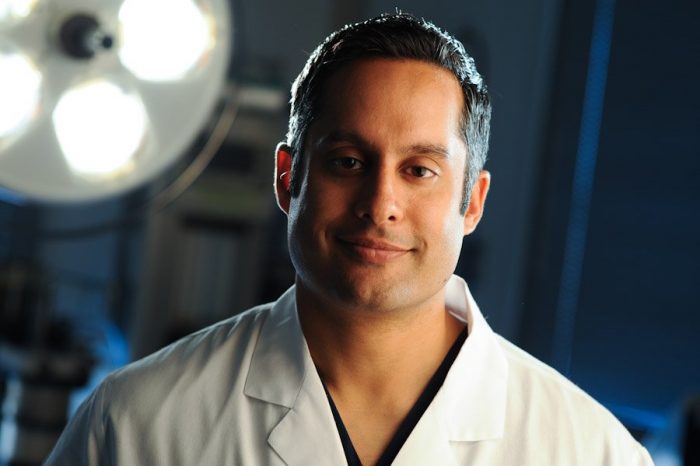Running or establishing a successful private practice takes hard work and unwavering determination. It also requires investing in yourself, embracing technology, learning people skills, and continuously improving yourself as a private practitioner. With more than 15 years of experience as a highly successful plastic surgeon, Dr. Jejurikar shares some tips on things that can help you build and run a successful private practice.

About Dr. Jejurikar
Dr. Sam Jejurikar is a board-certified plastic surgeon and a member of the Dallas Plastic Surgery Institute. He has published several documents on plastic surgery and is affiliated with several hospitals in the Dallas region. He also co-hosts the “3 Plastic Surgeons and a Microphone,” podcast, a podcast series that discusses all things related to cosmetic procedures and plastic surgery. For three years in a row, D Magazine has listed Dr. Jejurikar as one of the top physicians in Dallas. Dr. Jejurikar graduated from the University of Michigan Medical School and has an MBA from the SMU Cox School of Business.
Embrace Technology
The advance in technology over the past few years for plastic surgery procedures have been remarkable. Dr. Jejurikar believes that two technologies, in particular, have been groundbreaking for the industry. First, there has been massive improvement in laser treatments and other non-surgical techniques for plastic surgery. Over the last few years, improvements in non-ablative lasers have greatly reduced the risk of changes in skin pigmentation, which had many patients wary of getting laser treatments in the past. With significant improvement in laser technology for plastic surgery procedures, most patients are now more comfortable with getting laser treatments.
The other technology that is becoming increasingly popular in the plastic surgery space is radiofrequency technology, during which the heat from radiofrequency is used to tighten the skin without any invasive procedures. One of the keys to creating and running a successful private practice is to embrace the latest trends in technology, so you can stay relevant to the changing times. For a competitive advantage, try to stay ahead of the curve by investing in the latest technology. It’s not just about the financial investment, as you also have to master how to use the new technology.
New technologies are not just improving the results for patients, but they are also allowing plastic surgeons to become more efficient. With non-surgical procedures, surgeons can achieve results in a shorter time frame. The increase in efficiency can result in the ability to accommodate more patients in your schedule and keep operational costs to a minimum.
Apart from non-surgical procedures, other types of technologies have also helped improve efficiency. For example, using machine learning or AI can optimize communication with patients before procedures. With the advent of 3D imaging, plastic surgeons can share projected results with patients before performing the procedures. This allows the patient and surgeon to make more informed decisions about the surgery.
Dr. Jejurikar is also aware of some of the concerns about technology in the plastic surgery industry. One such issue is the advent of apps and computer programs that allow people to manipulate images and videos. This has led to an unrealistic image of the perfect body or face, resulting in patients having high expectations for what they should look like. You might get patients who want to get a procedure done that is not suitable for their health. If you want to become a reputable plastic surgeon, you need to discuss the inherent risks with your patients, even if that results in them walking away.
Listen to Your Patients

Without looking at plastic surgery from the perspective of the patient, you might struggle to find meaning in your work. Dr. Jejurikar believes that listening to your patients will provide you with profound meaning. Listening to the patient and trying to understand why they want to get a certain procedure performed and what it means to them will allow you to connect better with your patients.
Listening to your patients can also help you screen them for suitability. This can have a massive impact on the success of your private practice. At the end of the day, the success of your private practice will depend on how successful you are in delivering results for your patients. By selecting patients that are more suitable for your surgical procedures, you increase your chances of delivering better results.
Another advantage of listening to your patients is that you get a chance to set up realistic expectations. This is especially important for cosmetic surgical procedures. Most patients are going to have certain expectations of what they will look like or how they will feel after the procedure is performed, and these expectations might not always match reality. By listening to your patients, you will get to know what they are expecting from this procedure, and this is your opportunity to educate them about the procedure and expected results.
Dr. Jejurikar was highly concerned about impressing his patients when he started his practice, and he would gauge his success that way. Over time, Dr. Jejurikar learned to focus on telling the truth and being realistic with his patients, including whether he thought they should not have surgery.
You should always look to perform a comprehensive pre-assessment. Encourage your patients to share their expectations, existing health conditions, prior medical history, and other relevant information that can help you filter through them. Only select the patients that you feel are suitable for your surgical procedures. It might be difficult to let go of patients early on in your practice, but in the long run, this will increase your chances of establishing your reputation as a highly successful private practitioner.
Keep Learning and Improving
According to Dr. Jejurikar, you should “do your best, [and] if your best is not good enough, figure out ways to make your best even better.” There are many ways for you to improve your skills and get experience that can allow you to deliver more value to your patients. If you are not certified as a plastic surgeon, you should consider getting certification from a recognized institution, such as the American Board of Plastic Surgery. By being a board-certified plastic surgeon, not only can you improve your skills, but you can also improve your reputation and status as a plastic surgeon.
You can also look for specialization within the field of plastic surgery. From the patient’s perspective, they would prefer to get a procedure performed by a surgeon who is highly experienced in that particular type of surgery. You can specialize in reconstructive surgery, facelifts, eyelid surgery, neck lifts, breast surgery, tummy tucks, liposuction, or any other type of plastic surgery.
Another great way to continuously improve your private practice is by using an EHR (electronic health record) or practice management tool designed to meet the needs of your practice. The ideal software will be configured to meet the workflow requirements and patient journey of your practice. One of the key benefits of using software is that it can provide you with data analytics that can help you continuously improve different aspects of your practice, including your efficiency, safety standards for the patient, and minimizing billing errors. Certain types of software integrate with patient apps with features such as online appointments, communication tools, telemedicine, and other tools designed for an optimized patient experience.
Market Your Practice
There are several aspects of a proper marketing plan for your private practice. In today’s age, you can’t ignore having a solid digital presence. This includes having a functional website with a good user interface, becoming active on social media, creating online directory profiles, and participating in online webinars and other digital forums.
Your website could be your first impression for your prospects, who might only spend a few minutes on your website before deciding if they want to visit you. Your website should contain patient testimonials and other resources to encourage visitors to make an appointment with you.
A great way to drive traffic to your growing private practice is through referrals. This requires you to create a referral network of trusted colleagues, patients, and relevant professionals. This will establish your credibility in your local area. You need to invest time and effort regularly to keep your referral network active. This means being part of local networking events, participating in online discussion boards, and reaching out to colleagues in your line of work.
Don’t Lose Track of Your Priorities

Understandably, you are going to have to work hard to make your private practice successful. However, you have to be mindful of your priorities and try to find the right balance between them. Dr. Jejurikar encourages you to make time for people that matter in your life. The support of your family and close friends is extremely important in providing you with the stability that will help you build a successful private practice.
It is also important to find a balance between focusing on the business aspect of your private practice and being a surgeon or clinician. It can become overwhelming to handle both aspects of establishing and running a successful private practice. In trying to become successful, don’t forget to take time for yourself. It might help to create a weekly schedule that reflects your top priorities as a surgeon and private practitioner but also makes time for your personal life. If you have any staff that works for you, don’t be afraid to delegate to them.
According to Dr. Jejurikar, it is also important to follow your passion. He further elaborates that if you are truly passionate about what you do, you will find joy in your daily work, and it won’t feel like a grind. Your private practice has a much higher chance of being successful if your passion is in that line of work.
While in medical school, Dr. Jejurikar was attracted to surgical subspecialties, as he did not like operating on the same regions of the body or delivering bad news to patients. With plastic surgery, he was able to continually operate on different regions of the body to create improvement, whether in appearance or function. The change-up of his routine was important for Dr. Jejurikar. You have to find out what you like doing, and it doesn’t have to be something drastically different from your line of work. It could just be specializing in certain types of procedures that you like doing or something that delivers the best result for your patients.











